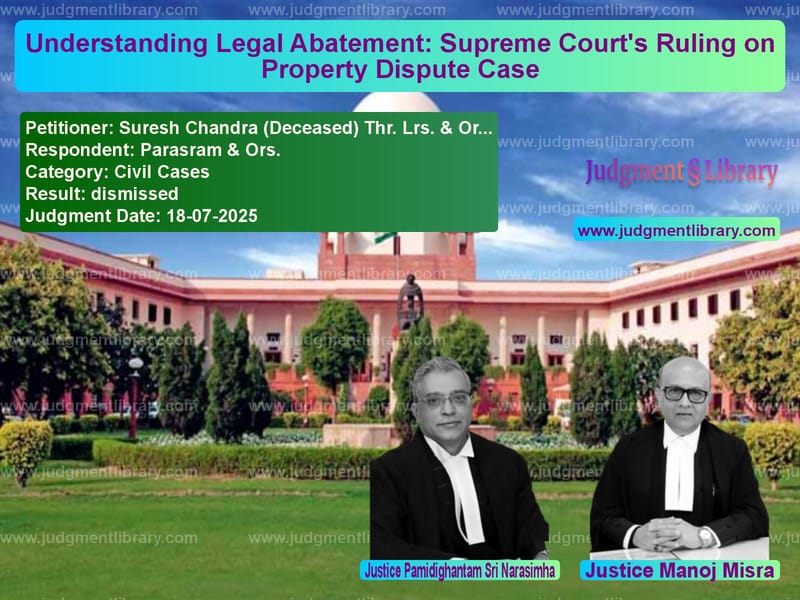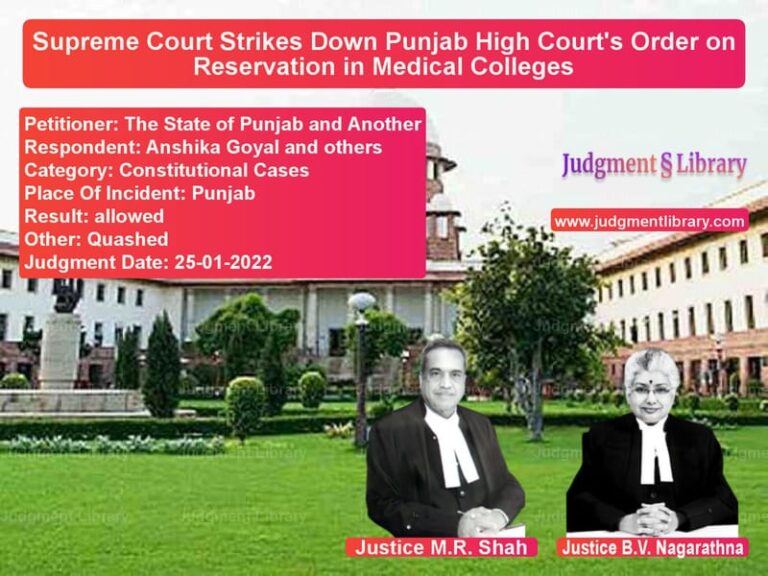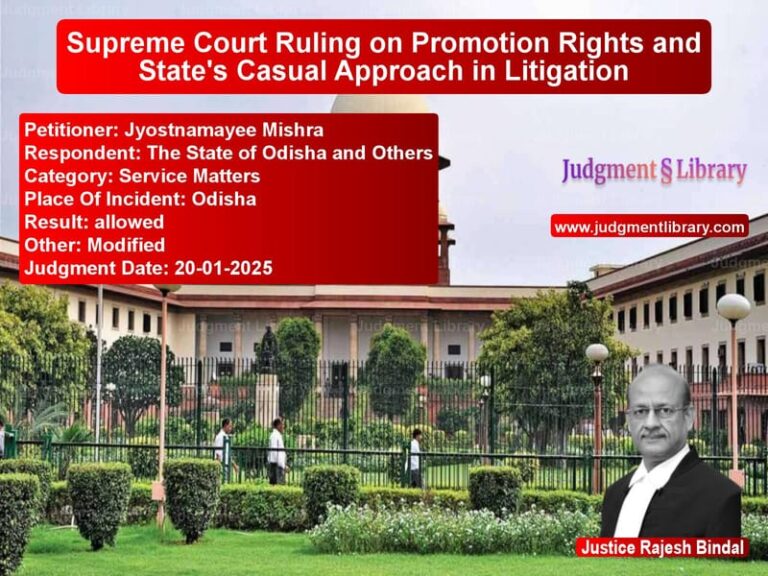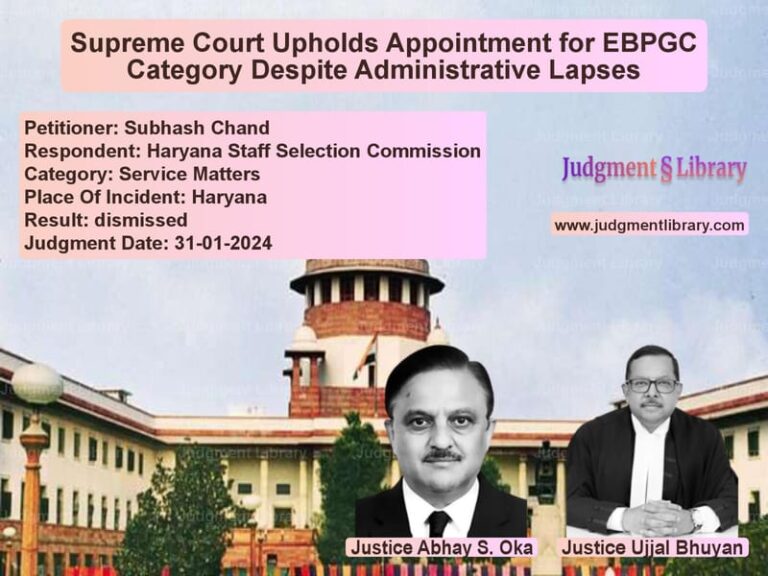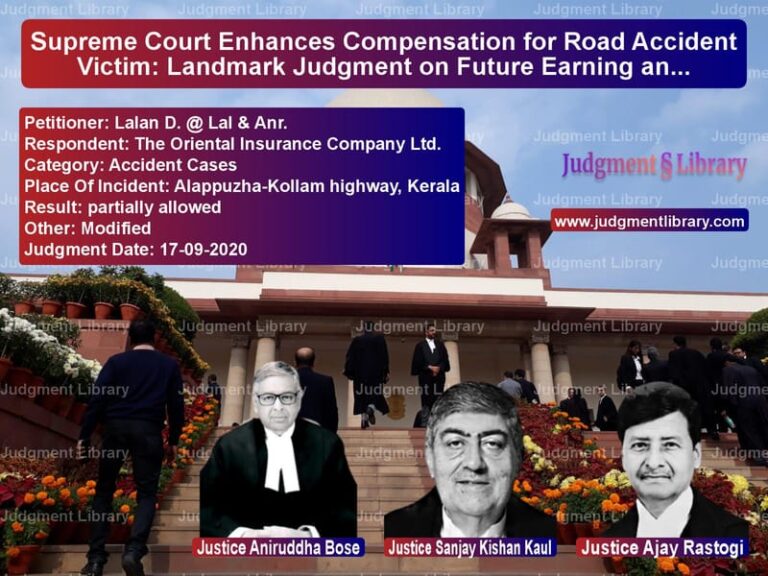Understanding Legal Abatement: Supreme Court’s Ruling on Property Dispute Case
In the complex world of civil litigation, few concepts are as technical yet consequential as the principle of abatement. This legal doctrine, which determines whether a case can continue when one of the parties dies during proceedings, recently came under the Supreme Court’s scrutiny in a property dispute that had been winding through India’s judicial system for decades. The case of Suresh Chandra versus Parasram represents a classic example of how procedural technicalities can sometimes determine the outcome of substantive rights, highlighting the delicate balance courts must maintain between procedural compliance and substantive justice.
The dispute began in 1983 when Parasram filed a civil suit against Suresh Chandra and Ram Babu, seeking declaration of title, recovery of possession, and mesne profits for a house. The plaintiff claimed exclusive ownership through his ancestor Tej Singh, alleging that the defendants were his tenants. The defendants, however, filed a joint written statement denying the tenancy and claiming title through their own ancestor, Gokul Prasad, who they asserted had derived exclusive interest in the property through a partition with his brothers in 1947.
The trial court initially dismissed the suit, but the first appellate court reversed this decision and decreed the suit in favor of the plaintiff. The legal representatives of Suresh Chandra and Ram Babu then filed a second appeal before the High Court. During the pendency of this appeal, a critical event occurred – appellant no. 2, Ram Babu, died on August 19, 2015. Although information about his death was given to the court on April 4, 2016, his legal representatives were not brought on record within the prescribed time limit.
This failure to substitute Ram Babu’s legal representatives within the statutory timeframe set the stage for the central legal controversy. The High Court, vide its order dated February 21, 2022, declared the appeal to have abated due to this non-substitution. Subsequently, applications filed for condonation of delay in applying to set aside the abatement and for substitution of Ram Babu’s legal representatives were rejected by the High Court on August 4, 2022.
Before the Supreme Court, the appellants’ counsel made sophisticated legal arguments regarding the nature of abatement. The learned counsel for the appellants submitted that, on non-substitution of legal heirs of a dead co-appellant, to determine whether the appeal abated partially, or wholly, what needs to be examined first is whether the surviving appellant has an independent right to pursue the appeal. If yes, whether he could seek for reversal of the entire decree under appeal. If not, then whether the decree in favour of the surviving appellant would result in a decree contradictory or conflicting with the one qua the deceased party. According to the appellants, their right was independent of the deceased appellant Ram Babu, and under Order XLI Rule 4 of the Civil Procedure Code, one defendant could seek reversal of the whole decree when based on grounds common to all.
The respondents countered with equally compelling arguments. Per contra, the learned counsel for the contesting respondent submitted, firstly, the heirs of Ram Babu have neither filed Special Leave Petition nor have joined as petitioners, though impleaded as proforma- respondents, therefore the order rejecting their substitution application cannot be questioned. Secondly, the decree against the defendants was joint and indivisible, therefore, if the decree stands against Ram Babu, a decree in favour of Suresh Chandra (through LRs) would result in a conflicting decree. The respondents further argued that Order XLI Rule 4 does not exclude the applicability of Order XXII Rule 3, and once all defendants join to file an appeal, death of one appellant necessitates substitution if the right to sue does not survive on the surviving appellants alone.
The Supreme Court, in its comprehensive analysis, delved deep into the legal principles governing abatement of appeals. The Court noted that Order XXII Rule 1 of the CPC lays down the general principle that if the right to sue survives, the suit shall not abate on death of either the plaintiff or the defendant. However, the Court emphasized that the law has evolved to recognize that in certain kinds of litigation, the consequences of abatement qua a party are not limited to the deceased party alone but affect the litigation in its entirety.
The Court extensively referenced its landmark five-Judge Bench decision in Sardar Amarjit Singh Kalra v. Pramod Gupta, which established crucial principles for determining when an appeal abates entirely. The question as to whether the decree is joint and inseverable, or joint and severable or separable, must be decided, for the purposes of abatement or dismissal of the entire appeal, only with reference to the fact as to whether the judgment/decree passed in the proceedings vis-à-vis the remaining parties would suffer the vice of contradictory or inconsistent decrees. The Court further clarified that a decree can be said to be contradictory or inconsistent with another decree only when the two decrees are incapable of enforcement or would be mutually self-destructive and that the enforcement of one would negate or render impossible the enforcement of the other.
Applying these principles to the present case, the Supreme Court found that the defendants had claimed a joint interest in the suit property flowing from their father Gokul Prasad, while the plaintiff claimed title through his own father with the additional claim that the defendants were his tenants. The first appellate court had accepted the plaintiff’s case, holding the plaintiff to be the owner and the defendants to be tenants. The Court reasoned that if, on non-substitution of the legal representatives of one of the defendant-appellants, the second appeal abated qua him, the decree as against him, holding him to be tenant and plaintiff the owner, attained finality. Therefore, if the second appeal is allowed to proceed, on it being allowed, possibility of conflicting and contradictory decrees, in respect of same subject matter, coming into existence cannot be ruled out.
The Court also addressed the appellants’ argument regarding Order XLI Rule 4, holding that Rule 4 of Order XLI applies to the stage when an appeal is filed and empowers one of the plaintiffs or defendants to file an appeal against the entire decree in certain circumstances. A plaintiff or defendant can take advantage of this provision, but he may not. Therefore, once an appeal is filed by all the plaintiffs or defendants aggrieved by the decree, the provisions of Order XLI, Rule 4 become unavailable. Since the second appeal was jointly filed by both defendants, the benefit of Order XLI Rule 4 was not available to the surviving appellant.
In its concluding observations, the Supreme Court emphasized that the underlying principle in the aforesaid decisions is that in respect of the subject matter of a suit or a proceeding arising therefrom, the court cannot pass inconsistent decrees. In consequence, if, due to non-substitution of LRs of a deceased party, the decree qua the deceased party has attained finality by abatement of proceedings qua him, the Court cannot proceed further if a reversal or modification of the decree under appeal would result in conflicting or inconsistent decrees.
The Court ultimately dismissed the appeals, holding that on abatement of second appeal qua the second appellant Ram Babu, the entire second appeal abated as continuance of the second appeal would have given rise to a possibility of inconsistent decrees i.e., one in favour of the plaintiff against the deceased defendant-appellant and the other in favour of the surviving defendant appellant, even though both defendants claimed joint interest in the suit property flowing from their father.
This judgment serves as an important reminder of the critical importance of procedural compliance in civil litigation. While the outcome may seem harsh from the perspective of the surviving appellant, the Supreme Court’s decision reinforces the fundamental legal principle that courts cannot countenance contradictory decrees regarding the same subject matter. The ruling provides valuable guidance to litigants and lawyers about the consequences of failing to substitute legal representatives within the prescribed timeframe, particularly in cases involving joint rights and interests where the possibility of inconsistent decrees exists.
The case also illustrates how technical procedural rules serve important systemic interests by ensuring finality in litigation and preventing the judicial system from having to enforce mutually incompatible decisions. While procedural requirements may sometimes appear to be mere technicalities, they often embody deeper principles of justice and legal order that are essential for the proper functioning of the judicial system.
Petitioner Name: Suresh Chandra (Deceased) Thr. Lrs. & Ors..Respondent Name: Parasram & Ors..Judgment By: Justice Pamidighantam Sri Narasimha, Justice Manoj Misra.Judgment Date: 18-07-2025.Result: dismissed.
Don’t miss out on the full details! Download the complete judgment in PDF format below and gain valuable insights instantly!
Download Judgment: suresh-chandra-(dece-vs-parasram-&-ors.-supreme-court-of-india-judgment-dated-18-07-2025.pdf
Directly Download Judgment: Directly download this Judgment
See all petitions in Property Disputes
See all petitions in Contract Disputes
See all petitions in Succession and Wills
See all petitions in Landlord-Tenant Disputes
See all petitions in Damages and Compensation
See all petitions in Legal Malpractice
See all petitions in Judgment by P.S. Narasimha
See all petitions in Judgment by Manoj Misra
See all petitions in dismissed
See all petitions in supreme court of India judgments July 2025
See all petitions in 2025 judgments
See all posts in Civil Cases Category
See all allowed petitions in Civil Cases Category
See all Dismissed petitions in Civil Cases Category
See all partially allowed petitions in Civil Cases Category

